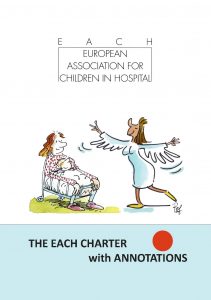
Children’s Health Scotland has welcomed the opportunity to respond to the Scottish Government’s consultation on the revised National Guidance for Child Protection in Scotland 2020. The Consultation has asked for views on updated National Guidance for Child Protection in Scotland, which will replace the current National Guidance published in 2014.
It describes the responsibilities and expectations of everyone who works with children, young people and their families in Scotland and sets out how agencies should work together with children, young people, parents, families and communities to protect children from abuse, neglect and exploitation.
Commenting on the consultation submission by Children’s Health Scotland, Helen Forrest, Chief Executive said: “We have welcomed the opportunity to be part of the consultation process on the revised National Guidance for Child Protection which is comprehensive and should provide detail and guidance for those seeking advice on aspects of practice. It is our view that UNCRC Article 24, which recognises the right of the child to the enjoyment of the highest attainable standard of health and to facilities for the treatment of illness and rehabilitation of health, is consistently undermined by poverty and disadvantage. Also, the lives of children and young people with long-term or chronic health conditions are very complex and can involve a variety of health and education practitioners. As such, it is critically important to continually listen and respect the views and experiences of these children and young people – to hear their voices and ensure their rights to the best possible health are upheld.
The revised National Guidance for Child Protection aims to:
- be more embedded within Getting it right for every child (GIRFEC).
- respond to a greater breadth of issues relating to child protection.
- find balance between specific situations and broad guidance.
- support the provision of an equal level of support for all children, finding balance between national and local support.
“As the leading children’s health charity in Scotland, Children’s Health Scotland believes the national guidance is generally a comprehensive and well framed guidance document which looks at the child and family in a kind, inclusive and empowered way,” said Zoe Dunhill, Trustee with Children’s Health Scotland and an Independent Child Health Consultant. “There are, however, some areas of concern. Firstly, of critical importance, is that the guidance should make it clear from the outset that transitions, and any associated planning, belong to the child or young person. Transition is a process not an event. As such, it involves many services, agencies, and people. It is vital that the process is managed through the application of robust and coordinated plans to ensure that all children and young people get the personal support, information, and resources they require.
“In relation to home-schooling, we have asked that the guidance reflects our concern that children may have their right to the best health possible health withheld if there is no adequate surveillance of home-schooled children and young people. We have requested that home educators and local authorities must work together in the best interests of the child.”
As detailed in the submission by Children’s Health Scotland, the charity has a concern regarding unacceptable risk potentially associated with children with long-term health conditions or who are chronically ill who are home-schooled. If no adequate surveillance exists for these home-schooled children and young people, they may not receive the protection they need because of either neglect or a lack of awareness about aspects of their conditions.
“In relation to children with long-term health conditions either in hospital or at home Children’s Health Scotland would also like to see the European Association for Children in Hospital (EACH) Charter embedded into ‘core element’ thinking within the guidance,” added Helen Forrest. “EACH is currently mapped to the UNCRC and the wellbeing indicators from the GIRFEC approach in our e-Learning resource and can therefore support awareness raising of the health rights of children and young people www.enetlearn.com/childhealthscot.”
CLICK HERE to read our consultation response.
